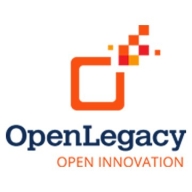

Apigee and OpenLegacy are competing API management platforms. Apigee has the upper hand due to its extensive feature set and robust customer support, appealing to enterprises with complex API needs, while OpenLegacy is favored for cost-effectiveness and legacy system integration.
Features: Apigee offers API analytics, developer management, and security features, suitable for enterprises with complex API requirements. OpenLegacy provides specialized integration for legacy systems, aiding in the modernization of outdated infrastructures. Apigee has a comprehensive suite of management tools compared to OpenLegacy's focus on legacy integration.
Room for Improvement: Apigee could improve its pricing to offer more cost-effective solutions for businesses with budget constraints. Another area is simplifying integration to enhance ease of use. Additionally, expanding its legacy system compatibility could attract more businesses. OpenLegacy can enhance its customer support to match Apigee's robust service. Its analytics capabilities might be expanded for better performance tracking, and improving cloud deployment options could increase its appeal.
Ease of Deployment and Customer Service: Apigee offers cloud-based deployment facilitating rapid setup with scalable solutions, benefiting cloud-first enterprises with robust customer service support. OpenLegacy's hybrid deployment model allows organizations to use existing on-premises investments with cloud capabilities, highlighting its flexibility.
Pricing and ROI: Apigee's setup costs are higher due to a comprehensive feature set, providing substantial ROI through operational efficiency and extensive support. OpenLegacy offers a cost-effective initial setup, ensuring excellent ROI for companies focused on modernizing legacy systems within budget constraints.
| Product | Market Share (%) |
|---|---|
| Apigee | 8.1% |
| OpenLegacy | 0.9% |
| Other | 91.0% |
| Company Size | Count |
|---|---|
| Small Business | 20 |
| Midsize Enterprise | 9 |
| Large Enterprise | 65 |
Apigee is a platform for developing and managing APIs. Apigee offers an interface for your core services by wrapping them with a proxy layer which is then accessed by other developers. With Apigee, you can design and build APIs and then securely share their services and data without exposing any code.
Because app developers make HTTP requests to an API proxy rather than directly to your services, your services are separated from the developers. All the developer needs to know is the URL of the API proxy endpoint, necessary query parameters, authorization credentials (if they exist), and the response data format.
The API proxy isolates the app developer from your backend service. Therefore, you are free to change the service implementation if the public API remains consistent. By maintaining a consistent frontend API, existing client apps will continue to work regardless of changes on the backend.
Key capabilities of the Apigee API management platform include:
Reviews from Real Users:
Apigee stands out among its competitors for a number of reasons. Several major ones are its rich developer portal, its advanced analytics, and its central monitoring system.
Carlos R., a software architect at Caja Los Andes writes, “The central monitoring feature is the most valuable. It also provides security for the APIs and high availability for our use cases. Apigee is the best product in the industry in comparison to other API management solutions. It helps in fast development, which is a top point. It also supports a lot of industry standards and has excellent documentation.”
An associate vice president at a tech services company notes, “The analytics function and the developer portal are the two valuable features of Apigee. The analytics part is very good, and the developer portal is quite rich in features. The authentication mechanisms are quite easily built into Apigee, which is something that most of the other products have also now started supporting.”
OpenLegacy helps organizations quickly launch innovative digital services by extending their core back-end systems to the web, mobile and cloud in days or weeks versus months. Our microservice-enabled API integration and management software quickly reduces project backlog by automating and accelerating microservices and API creation, deployment, testing and management from core applications, mainframes and databases. Together, business and IT teams can quickly, easily and securely meet consumer, partner or employee demands for digital services without modernizing or replacing core systems, and without special programming skills or invasive changes to existing systems and architectures. OpenLegacy is designed for ongoing management of microservices APIs and is based on open standards, so our software plays nice with your current technology stack and supports agile, DevOps and continuous development. Learn why leading companies choose OpenLegacy at www.openlegacy.com.
We monitor all API Management reviews to prevent fraudulent reviews and keep review quality high. We do not post reviews by company employees or direct competitors. We validate each review for authenticity via cross-reference with LinkedIn, and personal follow-up with the reviewer when necessary.